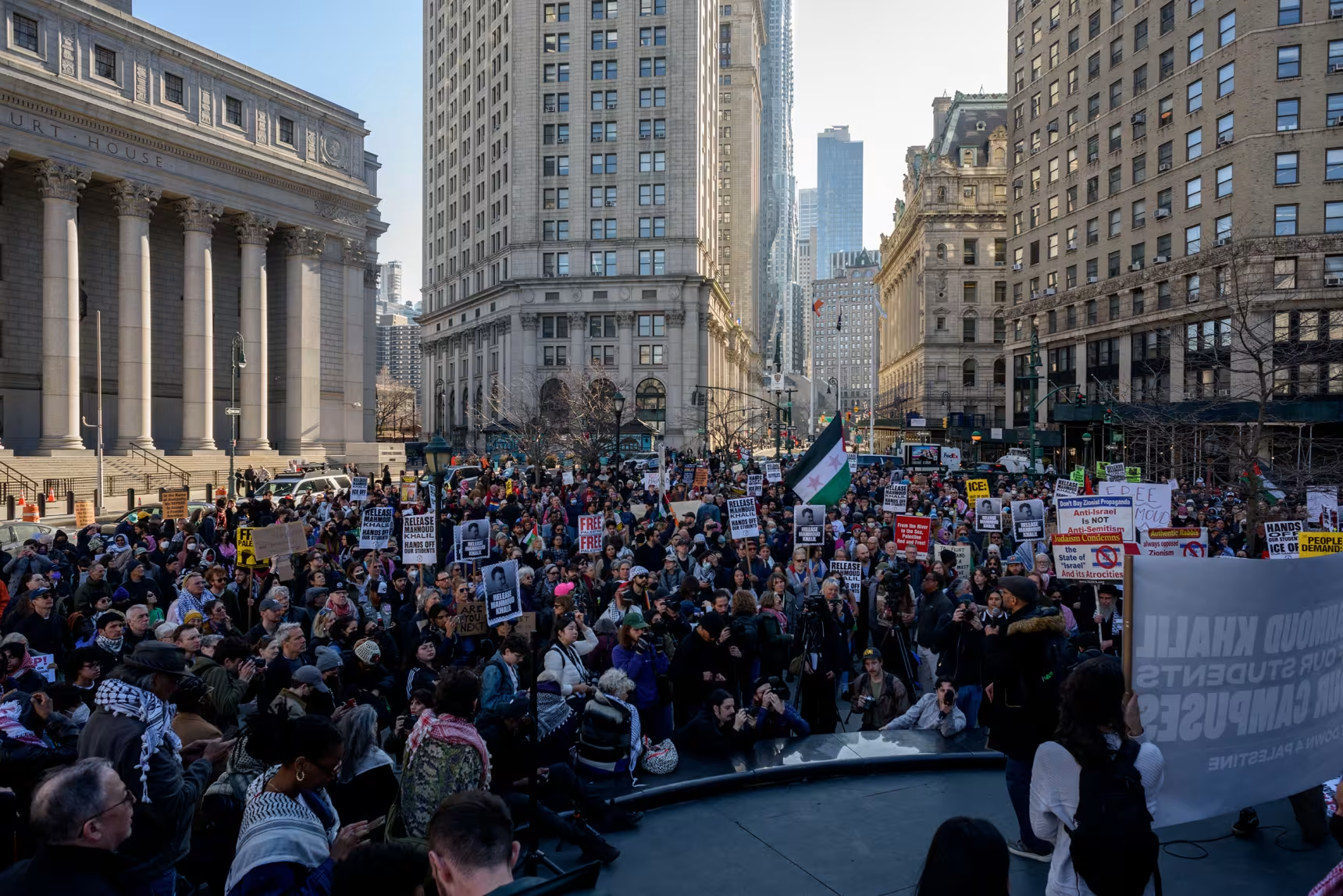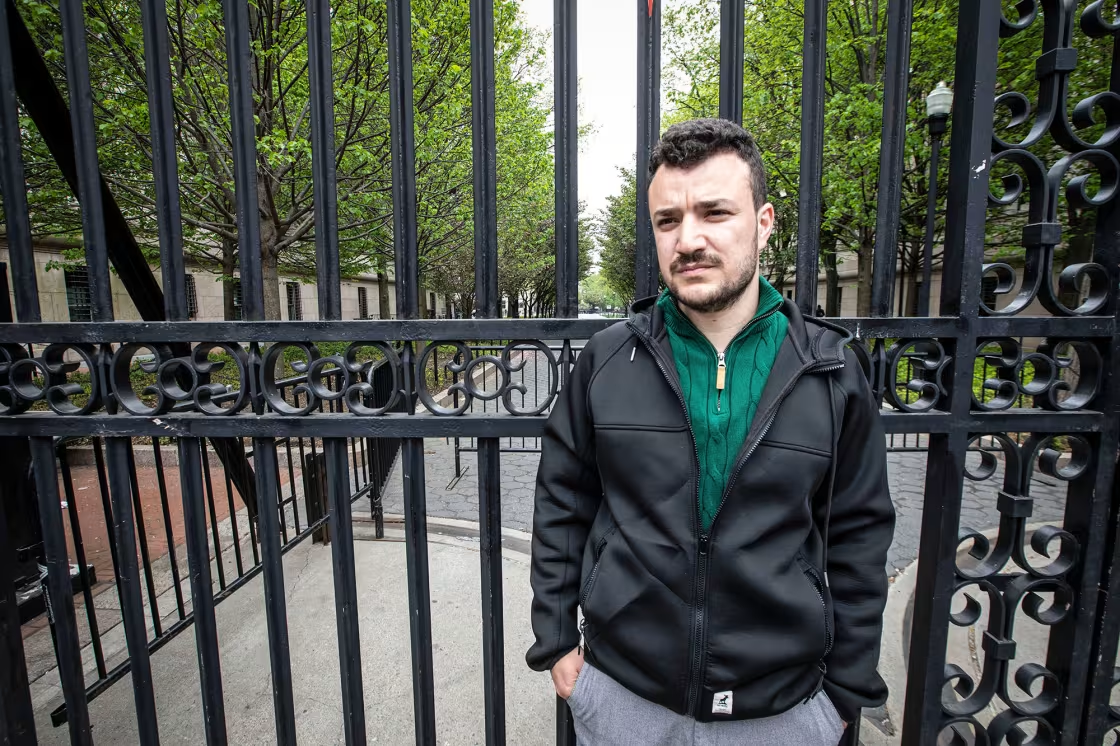Mahmoud Khalil‘s name has filled news outlets across America and internationally. His detention by U.S. Immigration and Customs Enforcement (ICE) has ignited widespread debate. People are discussing expression rights, constitutional liberties, and migration policies. Khalil is a Palestinian activist. He recently completed his studies at Columbia University. There, he passionately supported Palestinian causes. His American residency now hangs in the balance. Authorities are attempting to remove him using an obscure diplomatic statute.
Background and Activism Khalil was born in Syria in 1995. His formative years were influenced by regional turmoil and relocation. His family sought refuge in Lebanon. They were escaping the Syrian conflict. He eventually traveled to the United States to pursue higher learning. At Columbia, he emerged as a central figure in a student movement. He joined the Columbia University Apartheid Divest initiative. He urged the institution to cut financial ties with certain corporations. These were companies allegedly backing Israeli control of Palestinian territories.
Fellow students admired Khalil for his composed approach to activism. He championed nonviolent demonstrations and conversation. His political positions attracted criticism, particularly amid escalating friction on campus. Tensions grew between pro-Palestinian and pro-Israel factions at universities.
ICE agents apprehended Khalil following serious accusations. President Donald Trump propagated these. He was accused of “pro-terrorist, anti-Semitic, and anti-American activity.” These allegations remain unsubstantiated. Officials are using a rarely utilized provision for his case. This permits expulsion based on diplomatic concerns. They claim his presence could adversely affect foreign relations.
His capture has provoked widespread condemnation. Human rights organizations have spoken out. His classmates have rallied in support. Free expression defenders see it as politically motivated. Many believe it creates a troubling precedent for activists. Immigrant activists may be especially vulnerable.

Khalil’s predicament highlights issues facing immigrant groups. This is especially true for those involved in advocacy. Immigrants have historically fought for civil liberties. This arrest generates fears of retribution among them. The situation questions America’s commitment to free speech. Political dissent may not be protected equally. Foreign-born activists might fear deportation for speaking out. America risks silencing important voices. This undermines its democratic principles.

A positive outcome could emerge from this case. Jewish and Palestinian communities might unite in defending expression rights. Jewish leaders could advocate for his liberation. This might signal progress toward reconciliation. Such actions would cross political and religious boundaries. They would show that human rights protection is universal.
Khalil’s situation extends beyond one individual. It involves the right to dissent. It concerns immigrant safety. It affects the future of free expression in America. The nation must oppose politically motivated deportations. His release would confirm protest rights. It would present an opportunity for community unity. Jewish and Palestinian groups could jointly champion justice.
Freedom for Mahmoud Khalil represents freedom for all. It stands for justice, equality, and peaceful activism.